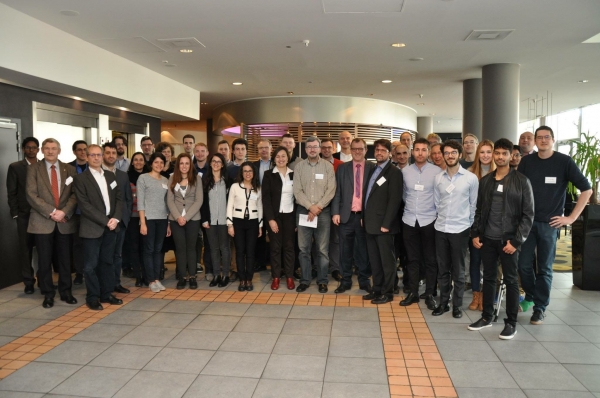Europe is seeking a competitive advantage over other markets around the world to relaunch its chemical industry and strengthen its position, and what is known as "green chemistry" seems to be the solution. In this context, the European COSMIC project, since 2018, has sought to improve the use of ultrasound and microwaves to generate new chemicals and more sustainable materials. The UCO has focused specifically on catalysts and nanomaterials.
Among COSMIC's most noteworthy results was that obtained by the UCO team coordinated by Professor Rafael Luque, which managed to create a new catalyst using microwaves, without generating contaminating waste, from pig hair.
The hair of this animal was used as a catalyst to decontaminate water. The advantage of pig hair is that it contains sulphur, which is found in proteins: "our idea was to combine sulphur with different metals to generate nanomaterials that can be used in the process of water decontamination and environmental catalysis", Professor Luque explained. Specifically, hair samples from a pig farm in Italy were used, recovering a form of waste that had formerly been squandered. "We did studies on the decomposition capacity of a kilo of pig hair, and we realized that it could clean thousands of cubic hectometres of water," Luque added.
According to the researcher, one of the "project's main achievements" has been the integration of chemistry, physics and process technology, which "could establish European leadership in this field". The research team also managed to salvage car parts to be used as catalysts; scrap at junk yards that previously was not being put to any use. "We were able to use those catalytic car parts after extracting their precious metals directly during the study," Luque concluded.
The project, coordinated by the University of Leuven in Belgium and with the participation of the FQM-383 group at the University of Cordoba, has had multiple collaborators from France, Italy, the United Kingdom, etc.
The COSMIC project - "European Training Network for Continuous Sonication and Microwave Reactors" (H2020-MSCA-ITN-721290-COSMIC) - was funded by the European Union through the H2020-MSCA-ITN-2016 call.
"This report is part of the project “CONSOLIDA-UCO ECT2020-000810", funded by MCIN/AEI/10.13039/501100011033 and by European Union “NextGenerationEU”/PRTR”.


